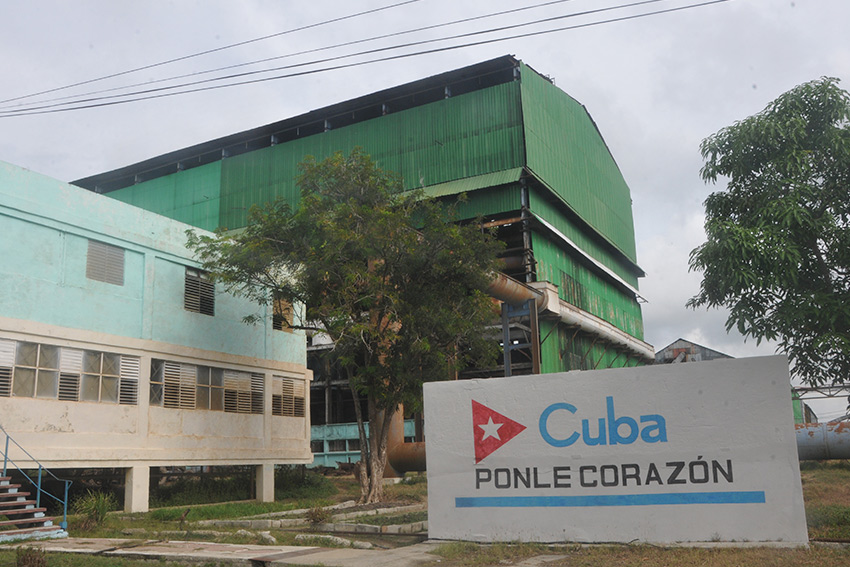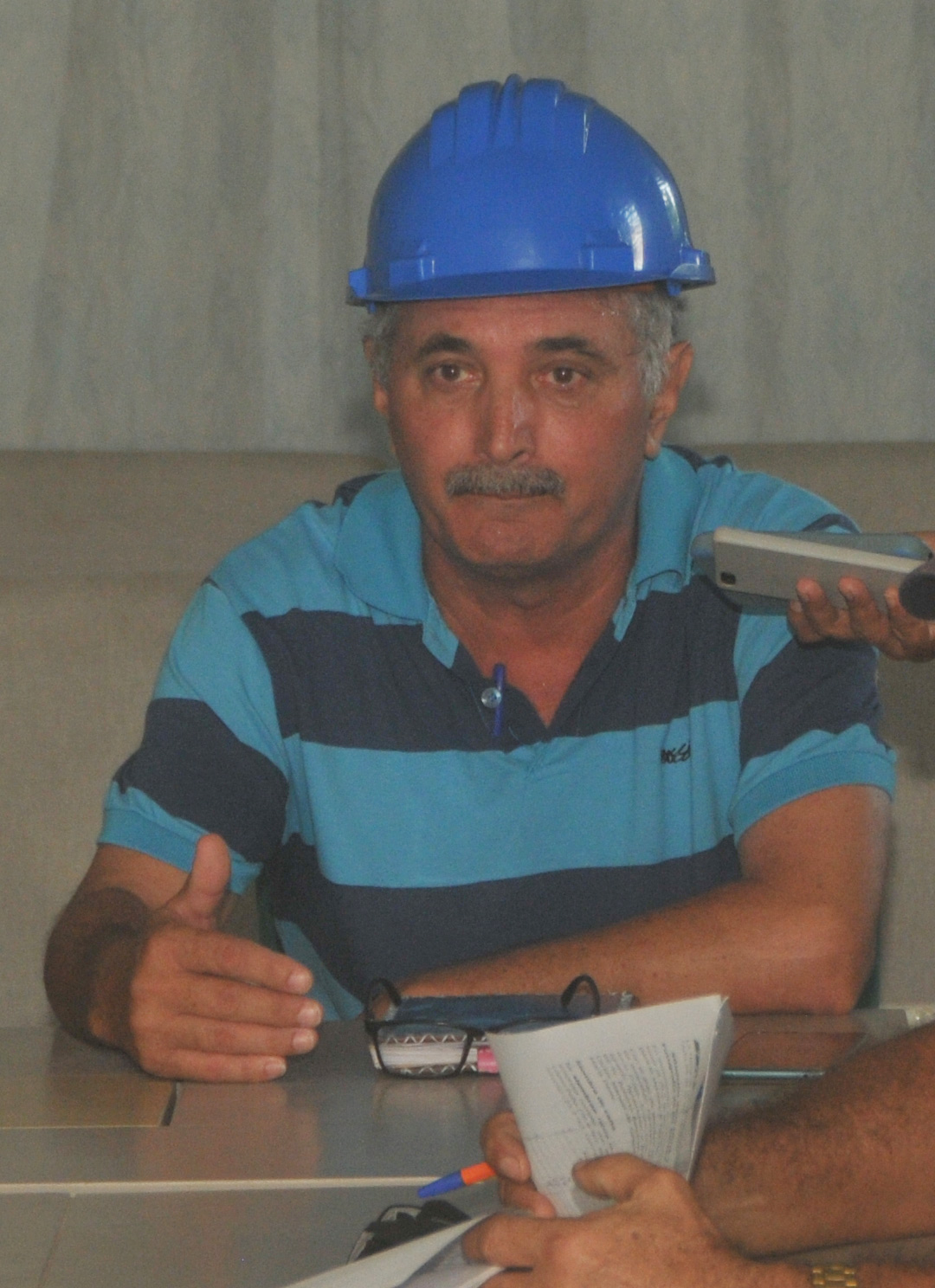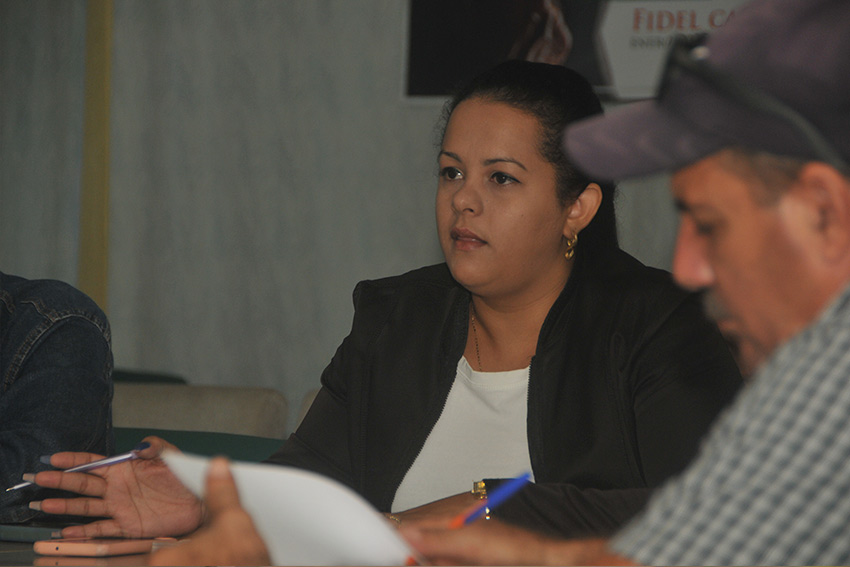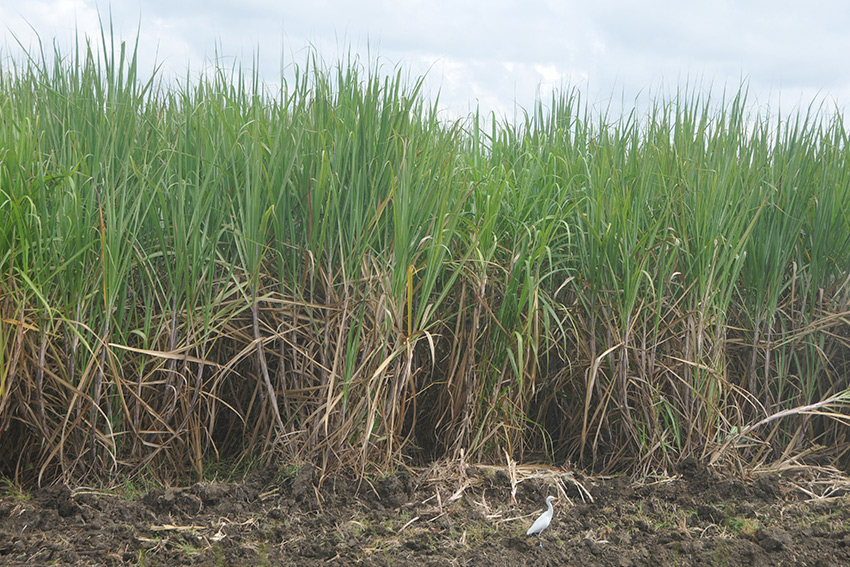
The most recent test at the Majibacoa sugar mill, the youngest in the province of Las Tunas, was described as excellent, and more than the success, we must focus on the entire collection that managed to get the mill ready for its upcoming start-up.
The start of the harvest will be in the next few days; for several months, the factory has been a constant coming and going of workers, cranes, and specialists to make the machinery work like the clock that it is since its creation on April 22, 1986.
 José Caballero Carballosa, head of Maintenance of the industry, explained that, in the previous campaign, 24 problems were identified that caused lost time due to breakages and they were worked on, especially with their efforts within the Majibacoa sugar agro-industrial company (EAAM).
José Caballero Carballosa, head of Maintenance of the industry, explained that, in the previous campaign, 24 problems were identified that caused lost time due to breakages and they were worked on, especially with their efforts within the Majibacoa sugar agro-industrial company (EAAM).
"The work has been carried out with great rigor, with intensity, and without haste. So far, the results have been positive and it is proof of the great commitment of the workers. Therefore, we are in a position to have a superior harvest in several indicators."
"We designed a staggered strategy that allowed us to review and check each area, depending on the availability of energy. Thus, we evaluated the tilters and mills, the steam plant, the boiler houses, the storage centers, and others."
The sugar mill can fulfill its sugar production plan, which amounts to 23,227 tons, and to this end, the board of directors' maxim is enforced, repeating over and over again that, in addition to the sugar cane, the most important thing in the company is the workers' collective.
To this end, training is consolidated by refreshing the knowledge of the more experienced workers and teaching those who have recently arrived. In addition, other actions are being taken, which result in greater stability of the workforce, as stated by Liliannis Pupo Coello, Human Capital Director.
"One of the measures is the creation of labor collectives, with a notable impact on production, income, and efficiency. In the company, we already have several, but the idea is to incorporate others so that workers feel identified with the work they do and improve their salary."
"We want to make the workers feel more in love with their work and that is why we prioritize emulation, stimulation, and the sale of agricultural products. Those who are directly involved in the manufacturing process are guaranteed the means of protection, especially clothing and footwear."
 Liliannis Pupo Coello, Human Capital Director |
"We have transportation for trips to and from several routes and, although the conditions of the country prevent a greater variety of offers in the cafeteria, there are always options. We make up for the shortage of flour for bread with boiled viands and, depending on their profession, several workers are assigned milk quotas."
As men and women are the most important part of this sugar production, the food required for cutting, lifting, and pulling is available, as reported by Eduardo Rodríguez Zúñiga, responsible for the agricultural activity.
"Most of it is part of the production of the different units, and in many cases, obtained with the use of animal traction due to the lack of fuel to prepare the land. In some areas, there are purchase and sale agreements between the cooperatives."
"Unfortunately, we do not have enough oxen to keep the areas covered, but there will be no difficulties with viands, fruits, milk, or grains. Vegetables will be received from small gardens or neighboring units and fat will be secured with sesame or pig oil."
"Several sheep, pigs, poultry, and rabbits are available and it is planned to slaughter some bulls for meat by-products. For desserts there will be no sugar; however, several cooperatives are already making sweets with sugar cane juice."
The EAAM is not exempt from problems that affect its integral management and one of them is the repair of the roads, on which work is being done, depending on the cutting strategy. The machinery and the availability of cane are not enough either, but a strategy was drawn up, according to Alberto Escalona Ramírez, director of Cane and who will be the harvest coordinator when the milling begins.
"For the cuts we plan to use 36 machines in the first stage and then incorporate 10 that will arrive from Amancio. There are locomotives, cage cars, hoppers, and other equipment. Generally speaking, the balance of cut and pull is guaranteed.
"As for sugarcane, it is a reality that the ones we have are not enough and that is a challenge for the coming years, to continue planting in areas that today are covered with marabou. For this contest, the industry needs 840 thousand tons of cane.

"Of these, 141,000 tons will arrive from the Grito de Yara area, and the municipality will receive about 165,000 tons. It is also expected to receive a little more than 90 thousand from areas of the Antonio Guiteras sugar mill, destined for the production of molasses, or perhaps sugar, which is the most necessary."
A successful harvest is the goal of the entire collection and even more so for the young Yaniel Alberto Sobredo Álvarez, who, although he manages them, learns from everyone every day. For the general director of the company, this is a special, decisive contest, for them and Cuba.
"The most important thing is that everyone knows their roles and responsibilities and for them to fulfill them, the workers are taken care of in a special way, not only with food or health and safety measures but also with initiatives that are very well received."
"For example, we do weekly emulations, we have a point of sale of agricultural products, and every day we have a bus that travels to the city of Las Tunas to transport workers and their families who need to make arrangements in hospitals or other entities."
"In the Majibacoa plant, this will be the harvest of dignity and unity. It is not easy, nor will it be, but positive results are within reach, with the contribution of women and men, young and experienced workers, managers and workers... we are all useful and success will also belong to all of us."





